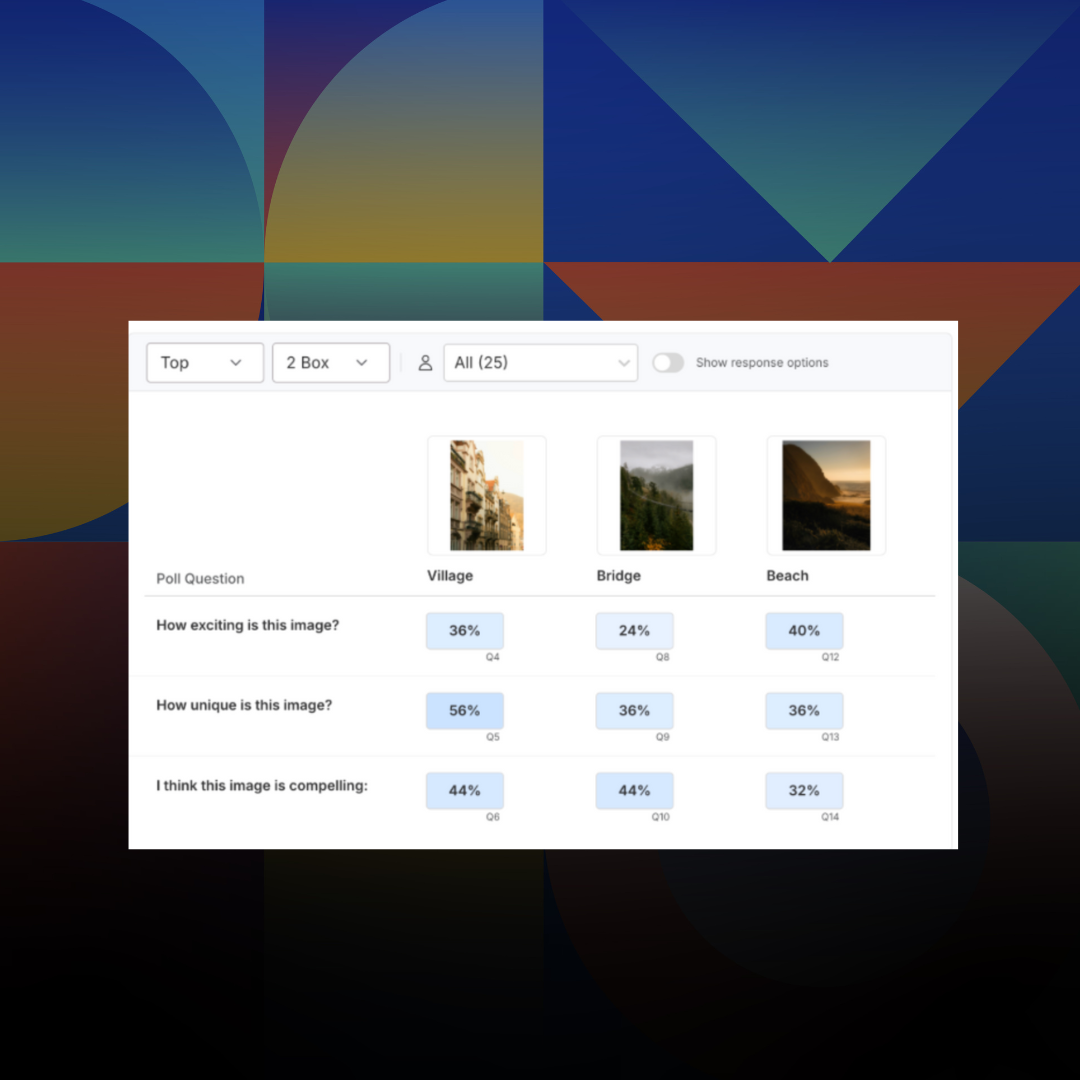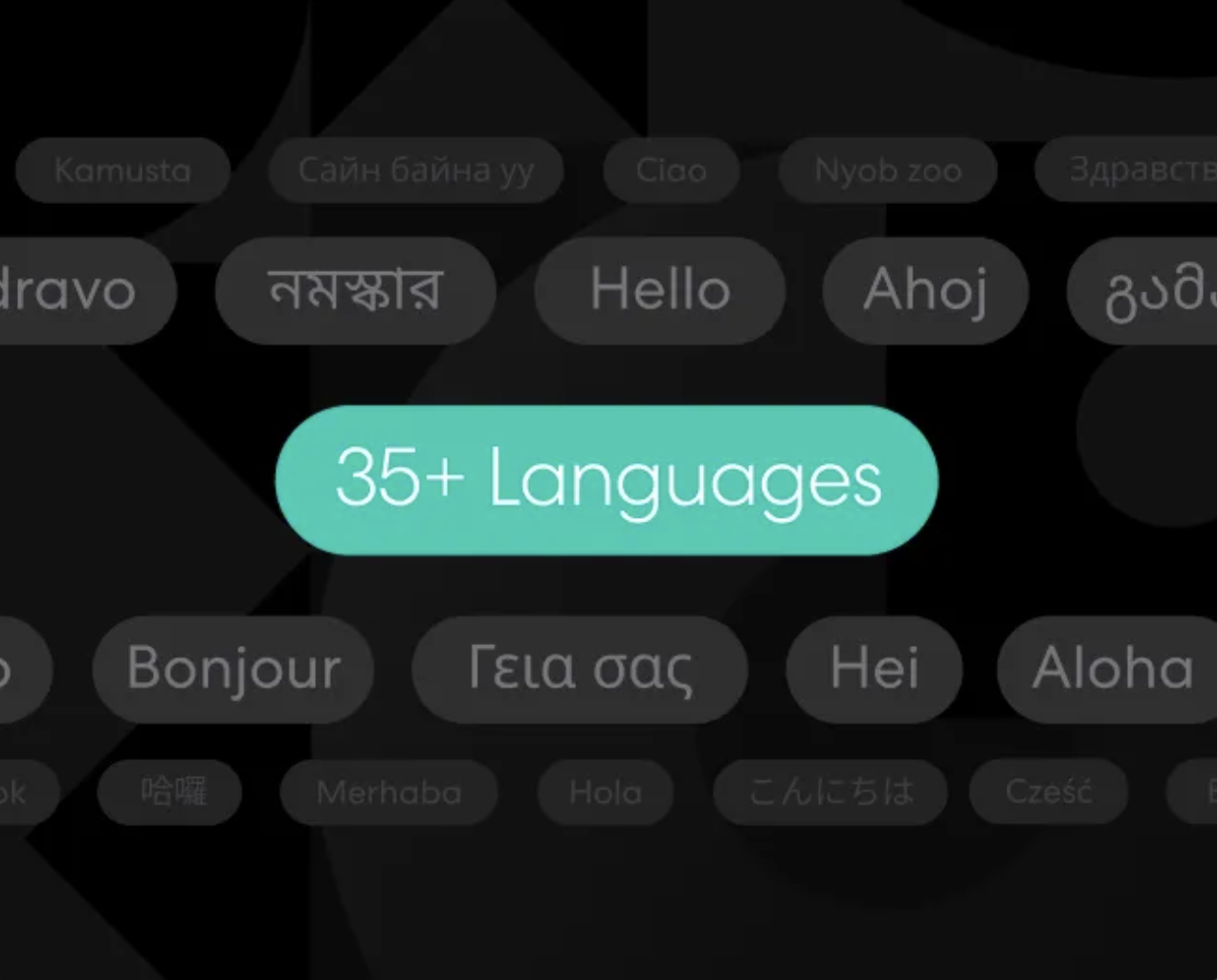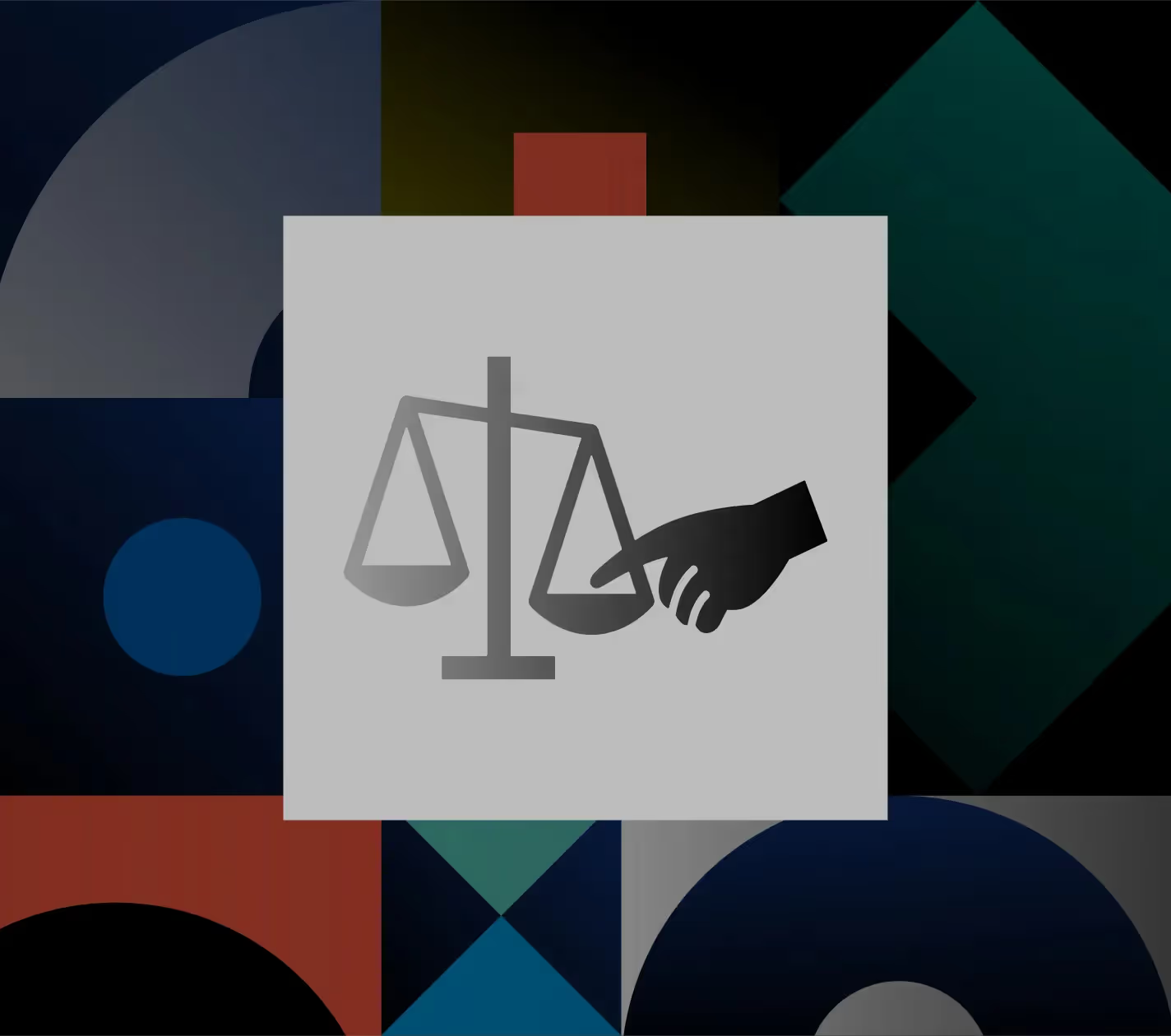.jpg)
Advanced Research
9 Essential Questions for Evaluating Employee Satisfaction Software
February 20, 2026
Employee Research
Articles
.jpg)
Advanced Research
9 Essential Questions for Evaluating Employee Satisfaction Software
February 20, 2026
Employee Research
Articles

Advanced Research
How to Evaluate Market Research Vendors for Global Reach
Team Remesh
February 10, 2026
Market Research
Articles

Advanced Research
How to Evaluate Market Research Vendors for Global Reach
Team Remesh
February 10, 2026
Market Research
Articles

Advanced Research
3 Early-Stage Research Methods to Gather Consumer Insights
Team Remesh
January 27, 2026
Market Research
Articles

Advanced Research
3 Early-Stage Research Methods to Gather Consumer Insights
Team Remesh
January 27, 2026
Market Research
Articles
.avif)
Advanced Research
Why Agencies Should Embrace AI Tools for Market Research
Team Remesh
January 26, 2026
Articles
.avif)
Advanced Research
Why Agencies Should Embrace AI Tools for Market Research
Team Remesh
January 26, 2026
Articles

Advanced Research
The Top Market Research Companies for the CPG Industry
Team Remesh
January 20, 2026
Market Research
Articles

Advanced Research
The Top Market Research Companies for the CPG Industry
Team Remesh
January 20, 2026
Market Research
Articles

Advanced Research
The Most Cutting-Edge Consumer Insights Software of 2026
Team Remesh
January 5, 2026
Market Research
Articles

Advanced Research
The Most Cutting-Edge Consumer Insights Software of 2026
Team Remesh
January 5, 2026
Market Research
Articles

Research 101
Introducing: Poll Comparison - Streamline Concept Testing and Make Better Decisions Faster
Emmet Hennessy
November 24, 2025
Market Research
Articles

Research 101
Introducing: Poll Comparison - Streamline Concept Testing and Make Better Decisions Faster
Emmet Hennessy
November 24, 2025
Market Research
Articles

AI
Purpose-Built for Research AI is Here - a Letter from the CPO
Jessica Dubin
October 21, 2025
Market Research
Articles

AI
Purpose-Built for Research AI is Here - a Letter from the CPO
Jessica Dubin
October 21, 2025
Market Research
Articles

Advanced Research
Unlock Agile Global Insights: Using Remesh Multi-Language Conversations for Research Across Audiences
Customer Success Team
October 14, 2025
Market Research
Articles

Advanced Research
Unlock Agile Global Insights: Using Remesh Multi-Language Conversations for Research Across Audiences
Customer Success Team
October 14, 2025
Market Research
Articles
How to Avoid Confirmation Bias in Research
Overcoming confirmation bias in research: Learn how to avoid the pitfalls of confirmation bias and ensure the validity of your findings.



Research is so much more than just getting confirmation that your assumption was right - especially when it's not. Or when there’s more to the story. Confirmation bias is when people just want a “yes, you are right.” In research, it can undermine data interpretation and lead to misguided strategies. So, it's important to consider how to avoid confirmation bias in research. After all, a commitment to objectivity is so important in any project.
Understanding confirmation bias in research
Confirmation bias occurs when researchers seek out, analyze or construe the information in a manner that reinforces their prior assumptions.. At the same time, they minimize or ignore evidence that contradicts them.
This bias can take many forms throughout the research process. It may influence the design of a study. When confirmation bias comes knocking, researchers ask questions or select methodologies that are more likely to yield results that align with their hypotheses. It can also affect the way data is analyzed and interpreted. Researchers may focus on information that supports their theories. They may discount or rationalize away contradictory evidence.
Strategies for reducing confirmation bias
There are several best practices researchers can follow to minimize the impact of confirmation bias on research:
1. Define clear, feasible objectives
At the outset of a project, it's essential to establish specific, achievable goals.
"Quality research stems from a specific and achievable objective," said Bill Cullo, research consultant at Remesh.
Clearly defining the parameters of the study helps researchers maintain focus. When done well, it also helps them avoid the temptation to selectively interpret data to fit a predetermined narrative.
2. Make use of technology
Platforms like Remesh blend qualitative and quantitative elements. Combining different research approaches can provide a more comprehensive view of the data.
Features like the voting system enable researchers to identify areas of consensus among participants quickly. Immediately, you get percent agreement scores on questions and have all of your polling data immediately.
This allows for rapid insights that weren't previously possible with traditional methods.
3. Remain open to unexpected findings
Often, the most valuable insights emerge from data points that were not anticipated. Be open to hearing what's being said and what responses are bubbling up.
Read next: Finding hidden insights in your research
4. Foster collaboration and diverse perspectives
Engaging with colleagues or external experts can help challenge assumptions and identify potential biases.
5. Utilize AI as a copilot
Artificial intelligence can be a powerful aid in analyzing complex datasets and identifying patterns. However, don’t use it as an autopilot, which is different from an AI copilot.
Final thoughts
Overcoming confirmation bias requires a consistent commitment to objectivity. Researchers are advised to follow the data, even when it leads in unexpected directions. Setting well-defined objectives is important. Employing structured methodologies is also crucial. Embrace surprising findings and encourage diverse perspectives. Using AI-powered research tools can help unearth valuable insights that might otherwise be obscured by preconceived notions.
Certainly, the pressure for rapid, efficient research is more important than ever. It can be tempting to take shortcuts or lean too heavily on assumptions, but that just undercuts the value of what market research can do for your company.
-
Lorem ipsum dolor sit amet, consectetur adipiscing elit. Suspendisse varius enim in eros elementum tristique. Duis cursus, mi quis viverra ornare, eros dolor interdum nulla, ut commodo diam libero vitae erat. Aenean faucibus nibh et justo cursus id rutrum lorem imperdiet. Nunc ut sem vitae risus tristique posuere.
-
Lorem ipsum dolor sit amet, consectetur adipiscing elit. Suspendisse varius enim in eros elementum tristique. Duis cursus, mi quis viverra ornare, eros dolor interdum nulla, ut commodo diam libero vitae erat. Aenean faucibus nibh et justo cursus id rutrum lorem imperdiet. Nunc ut sem vitae risus tristique posuere.
-
More
.jpg)


Stay up-to date.
Stay ahead of the curve. Get it all. Or get what suits you. Our 101 material is great if you’re used to working with an agency. Are you a seasoned pro? Sign up to receive just our advanced materials.

.png)

.png)

.png)
.png)





